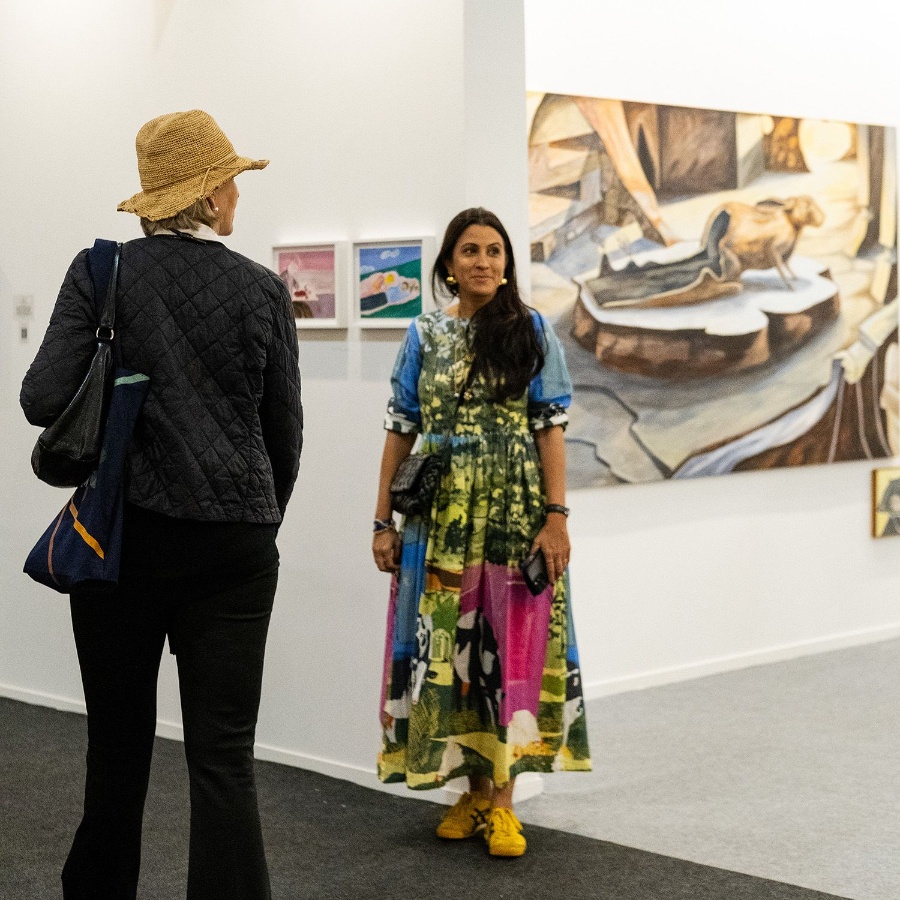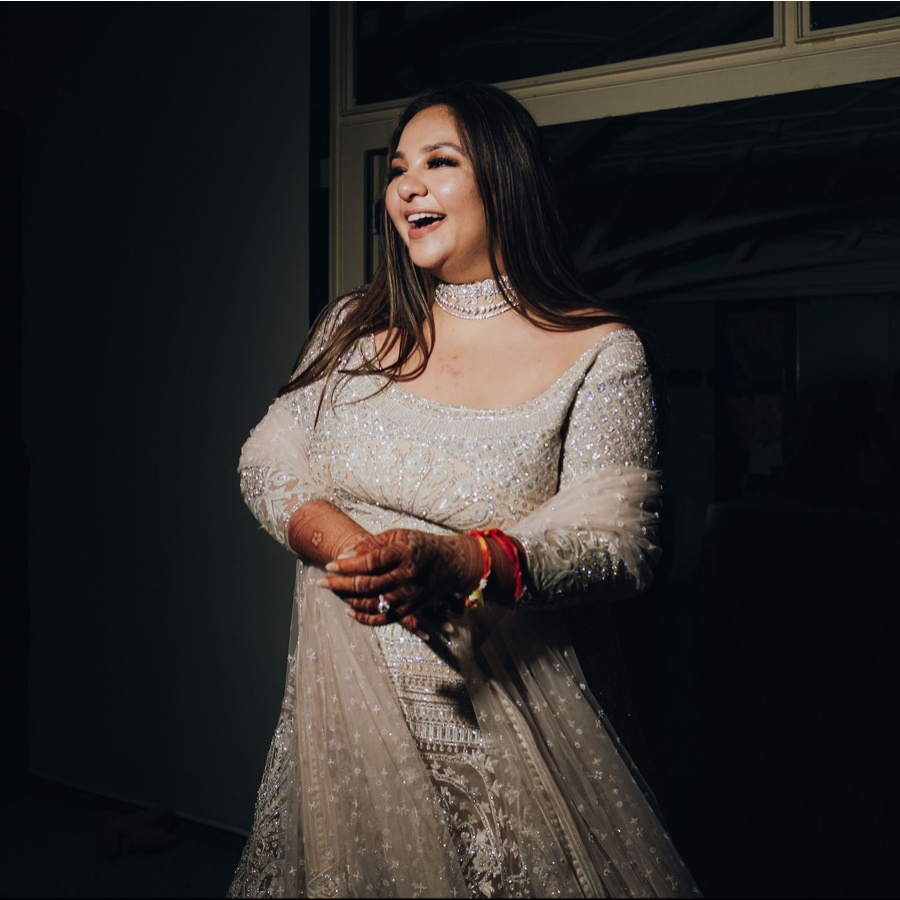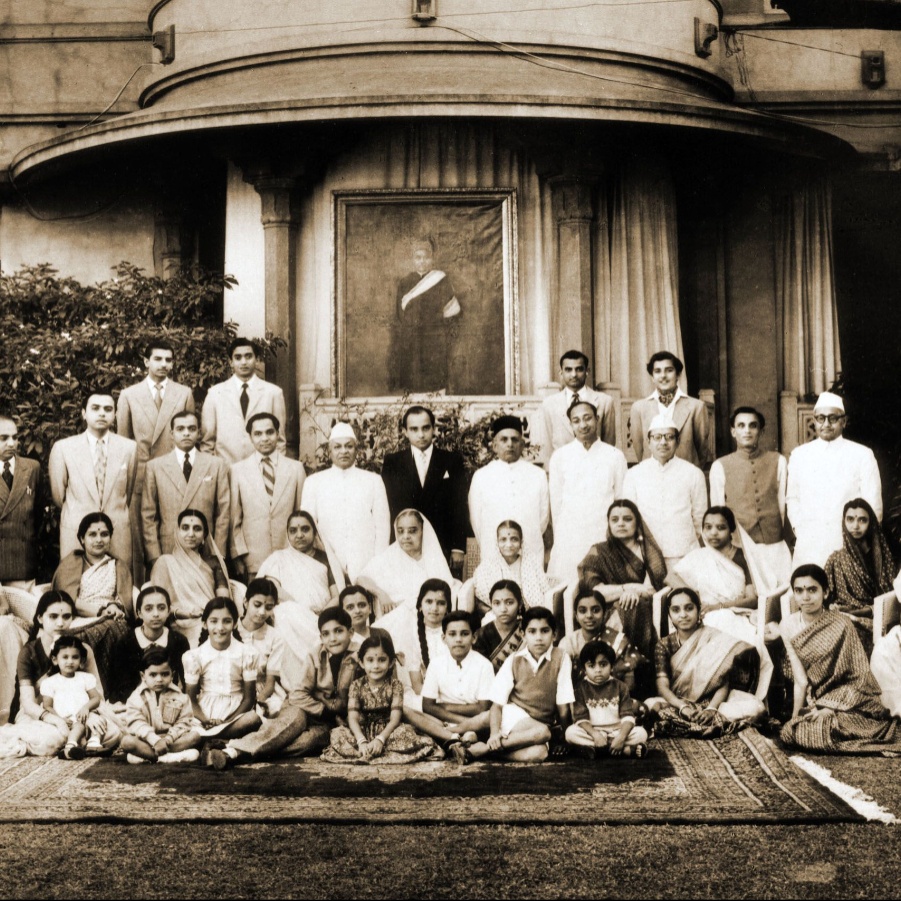Having moved to Delhi in 2014 to pursue a diploma in fashion design, Hauzel soon realised pattern-making required more mathematics than sheer vision. He turned to styling instead and joined the team at Jabong, a now shuttered e-commerce platform. He began Bygone Echoes in early 2020, as a way to sell off surplus clothes he’d thrifted in Manipur and Delhi for his styling projects. His entry coincided with a boom in pandemic-era second-hand shops on Instagram, many of which, such as Folkpants and Lali Vintage, were started by curators from the Northeast. In those strange times, when magazine editors asked celebrities to pose in their living rooms and photographers shot over Zoom, these second-hand shops supplied painterly escapism through editorials that were often on par with established magazines.
Many of his clothing ‘drops’ sell out minutes after he launches them on Instagram stories, where they’re snapped by his 17,000 followers.
Hauzel’s curations stood out thanks to his eye for interesting prints. His collections abound with psychedelic florals, bold checks, and bright plaid. Often, he styles them all at once in his editorials, making for a sort of kitschy perversion that could go horribly wrong, except he knows exactly how to temper it to make it strikingly modern and covetable. Many of his clothing ‘drops’ sell out minutes after he launches them on Instagram stories, where they’re snapped by his 17,000 followers that include many of the country’s top stylists, photographers, and editors. “I have a hard time selling solids, but prints always do well,” he says. Recently, he styled his first sari editorial for Ekaya Banaras and had an independent shoot featured in Vogue India. However, he still doesn’t lend his clothes to celebrity stylists, despite receiving multiple requests from them. “Maybe I will have to do that someday,” he says. “But for now, I’d rather just sell my finds, make some money for myself, and give my customers the chance to own something special.”

A menswear look styled and curated by Hauzel
Hauzel’s knack for finding second-hand gems developed early, and less from desire than need. “Where I grew up, the only clothing shops were second-hand shops, and this continued till 2010-11. We sometimes got our clothes tailored, or some went to Burma to get new clothes. But largely, we bought and wore second-hand clothes, and passed them down to our siblings and cousins,” he reminisces. In a community where fashion influences came from Western media, and Korean entertainment right from the mid-2000s, he had to be innovative with what he had. His creative energy is inextricable from this locale. It’s not uncommon for him to go back home with his vintage finds, rally up cousins and friends, style and shoot them on his phone camera. “Sometimes I even do the make-up, although I am not that good,” he laughs.
Accessibility is a significant consideration as he begins work on his eponymous label, Hauzel, which he hopes to launch later this year. “For my first collection, I plan on offering only around 10 unisex statement pieces, but will not price them outrageously,” he adds. Each piece will be upcycled from his vintage finds. His mood board consists of Manipuri and Mizo handlooms, local floral motifs, and interesting prints that he’s encountered in his second-hand searches. “My upbringing fostered in me a deep-rooted commitment to sustainability and conscious consumption. Now, as I build my brand, I want to pass on these values to others: promoting sustainability, conscious shopping, and a deeper appreciation for what we already have.”







